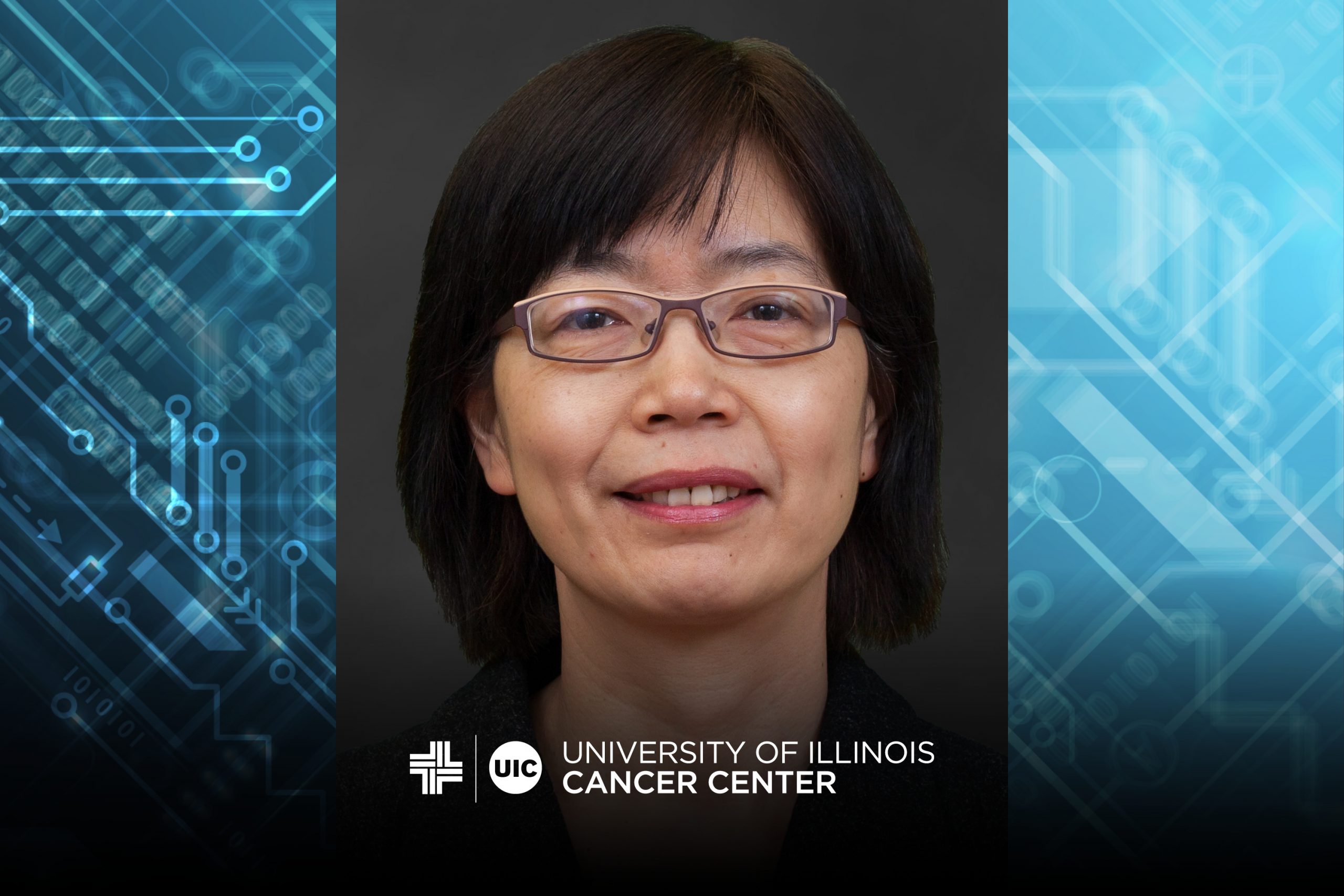
Yang Dai sees a lot of similarities between numbers and diseases.
Dai, PhD, Associate Professor and Associate Director of Graduate Studies (as leader of the Bioinformatics Graduate Programs) at the Richard and Loan Hill Department of Bioengineering, is one of six new members added to the University of Illinois Cancer Center’s roster. She will join the Center’s Cancer Biology program.
Trained in applied mathematics, Dai has more than 20 years of experience in developing methods in bioinformatics, especially machine learning – a method of data analysis that automates analytical model building. Dai’s laboratory develops methods for the inference of gene regulatory mechanism and prediction of biomarkers based on genetic, genomic, and epigenetic, as well as clinical data. The approaches, she said, are diverse, and include machine learning, statistical modeling, and optimization methods.
“I have been always interested applying the machine learning and statistical modeling in deriving knowledge that has been generated from functional genomics in cancer studies. We recently expanded our research to the area of microbiome studies,” Dai said. “We have begun utilizing deep neural networks to model the interactions between gut microbiome and metabolome for host phenotype prediction such as Inflammatory Bowel Disease and generating a hierarchy of microbes and metabolites interaction modules, which would have been impossible with traditional approaches.”
During her tenure at UIC, Dai has served as co-investigator on more than a dozen research projects funded by the federal governments and non-profit foundations and has published more than 110 peer-reviewed papers and book chapters.
As principal investigator (PI) and co-principal investigator (co-PI), Dai has developed novel machine learning methods for the prediction of Major Histocompatibility Class II epitopes (NIAID) – network-based methods for understanding the tissue-specific and ligand-specific regulatory mechanism of estrogen and progesterone receptors in breast cancer and endometrial disease (CBC). She is currently the PI on a sub-award from the Northwestern University Uterine Leiomyoma Research Center (NIH P50, PI: Serdar Bulun, MD) focusing on bioinformatic analysis of omics data to identify progesterone receptor (PR)-chromatin interaction signatures and associated histone modifications in leiomyoma (known also as fibroids) with mutated MED12, a protein coding gene.
Dai received her PhD in Management Science and Engineering from Japan’s University of Tsukuba. Prior to joining UIC’s Department of Bioengineering in 2001, she served as a research associate and assistant professor at the Department of Management Science at Kobe University of Commerce before becoming an assistant professor in the Department of Mathematical and Computing Sciences at Tokyo Institute of Technology.
